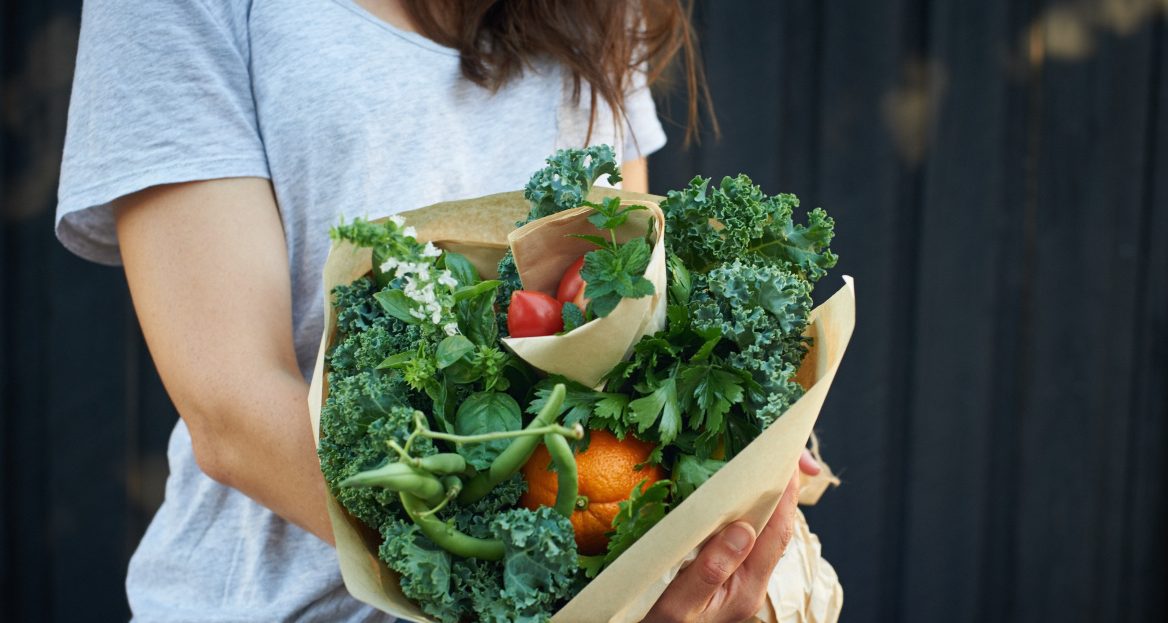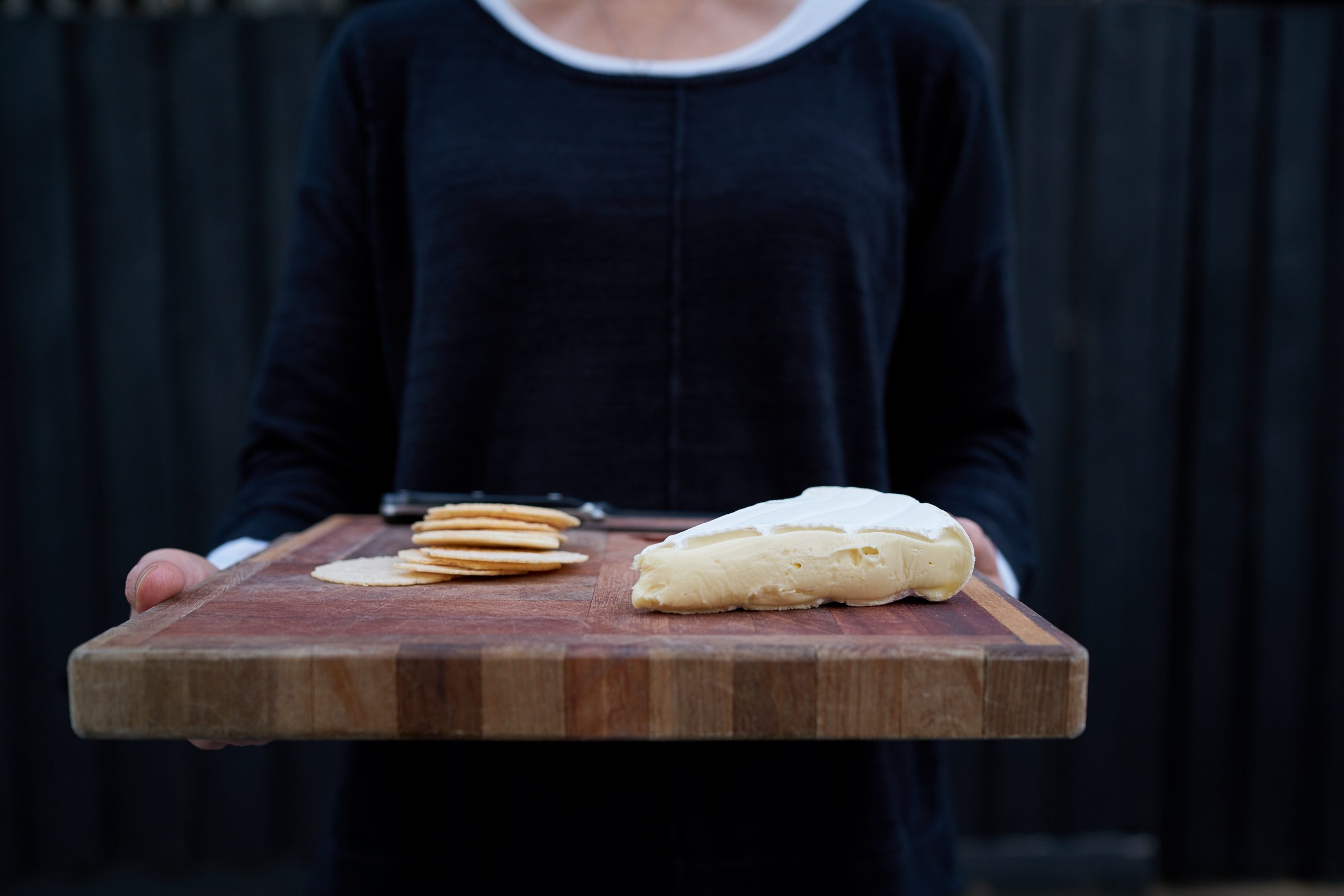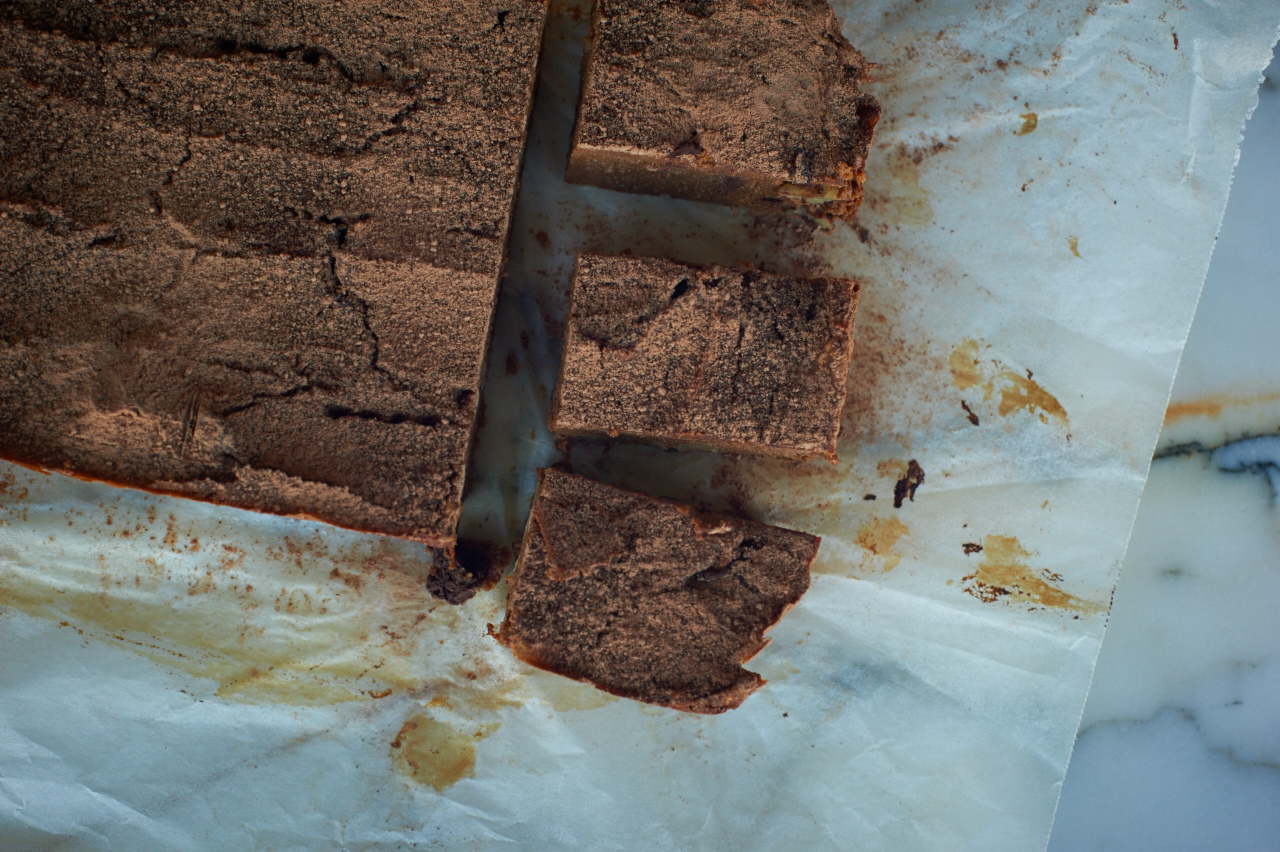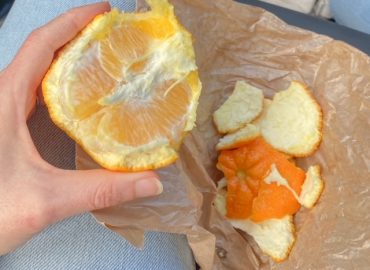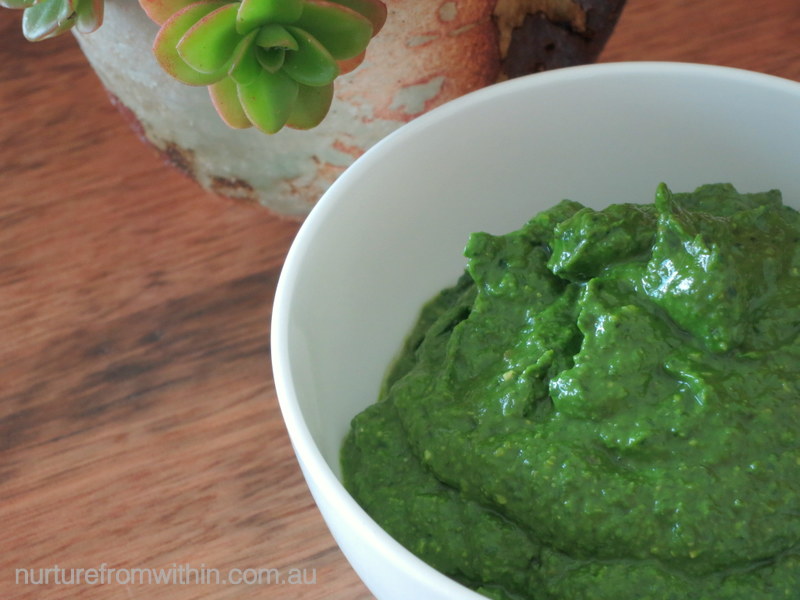Many of us are aware that certain foods are labelled as being unsafe during pregnancy.. raw fish, raw egg, soft cheeses and pre-packed deli salads being a few examples. However, while it may appear to be general knowledge what exactly should be avoided is a bit of a grey area. There’s an enormous amount of conflicting information out there.. it can really be confusing. For example, what about feta on pizza? Cold smoked salmon? Cold smoked meats? .. What about brie that’s baked?.. What about freshly made fruit juice from a cafe? And, are re-heated leftovers fine? Clients often ask questions like these so here is a clear summary, which I hope is helpful.
Firstly, a bit about Listeria
Listeria, as you may already know, is a type of bacteria found in our environment – in soil, water, plus animals can carry this bacteria too. When we consume food containing Listeria we run the risk of contracting listeriosis, a food-borne illness which presents a little like the flu. Symptoms of listeriosis include muscle aches, fever, nausea and vomiting.
Anyone can develop listeriosis, whether pregnant or not, but as pregnancy suppresses the immune system it’s much harder for the body to fight it off. While it’s extremely rare, and causes few or no symptoms in healthy individuals it’s dangerous for pregnant women and their unborn baby as it can cause miscarriage, premature birth, or stillbirth. I’ll stress again that it’s so incredibly rare.. and many women who for example have eaten a bit of feta (without knowing, thinking, forgetting or realising) or who choose to eat some of these foods because the risk is so low, have been fine.. however there continues to be cases of Listeriosis in Australia so it is a risk to be well aware of.
Luckily there is treatment for Listeriosis, and when detected and treated early on, infection and possible complications can be prevented (I will add here that if you do suspect that you’ve been exposed to Listeria or feel you may have listeriosis it’s important to notify your doctor, a simple blood test can be done to check). However, the best treatment of course is prevention – and having a clear understanding of food safety and high risk foods will enable you to can make informed choices for yourself.
So, here are the recommended precautions:
Taking precautions where you can will help reduce any risk. If you’ve been feeling worried or are unsure about what to avoid the list of precautions below, which are recommended by Food Standards Australia New Zealand (FSANZ), may be helpful.
1. Be careful and cautious in relation to food prepared by other people
- If unsure, it’s best to avoid: Avoid foods that you are unsure about how they have been prepared, stored and handled. Food is safe if you cook or reheat it and serve it hot.
- If eating out, hot meals are a safe choice: Choose menu items that are cooked to order and
served hot. - Only buy ready-to-eat hot food if it’s steaming hot: If you buy ready-to-eat hot food, for example a cooked chicken, make sure it’s very hot and either eat it or refrigerate it promptly once you arrive home, and use it within a day.
- Avoid ready-to-eat food from salad bars, sandwich bars, delicatessens and buffets: Ready-to-eat foods from salad bars may have been prepared and refrigerated some time before they are put on display. Avoid any foods that are on display, such as premade sandwiches and salads.
- If buying ready made meals, cook according to instructions and ensure that the meal is piping hot throughout before you eat it.
2. Make safe food choices and practice safe cooking methods
- Eat freshly cooked or freshly prepared foods: Eat only freshly cooked food and well-washed freshly prepared fruit and vegetables. Leftovers are ok if they are refrigerated promptly and kept no longer than a day. It’s safest to not eat food if there is any doubt about it’s hygienic preparation or storage.
- Cook foods thoroughly: Thorough cooking of food will destroy any possible Listeria.
- Reheat foods to ‘steaming’ hot: If you plan to eat previously cooked and refrigerated leftovers, only keep them in the refrigerator for a day and reheat them so that they
are steaming hot right through the middle. This will destroy any bacteria present. Discard food if not consumed the day after you prepared/cooked it. - Avoid foods that are past their ‘best before’ or ‘use by’ date: Choose and consume food well within their ‘use by’ or before their ‘best before’ date.
3. Prepare, store and handle foods hygienically
- Thoroughly wash and dry your hands before preparing food.
- Keep your fridge clean and operate it below 5°C.
- Wash knives, cutting boards and kitchen appliances after handling raw food.
- Thoroughly wash and dry raw fruit and vegetables before eating or juicing.
- Thaw ready-to-eat frozen food in the fridge or microwave – don’t thaw at room temperature.
- Thoroughly cook all raw meat, chicken and fish.
- Don’t leave foods to cool on the bench or stove- top. Put them in the fridge once steam has gone.
- If you are keeping food hot, keep it very hot (60°C or hotter). Keep cold food cold (5°C or colder).
- Keep stored foods covered.
- Store raw meat separately from cooked and ready-to-eat food in your fridge.
4. Avoid high-risk foods
| Foods with a higher risk of Listeria – Reduce your risk by avoiding these | Here are safe alternatives |
| Cold meats that are either packaged or unpackaged (eg. ready to eat meats such as ham, salami, beef, turkey from delicatessen stores, sandwich bars), paté and any meat spreads |
Home cooked cold meats. Store in fridge and use within a day of cooking. |
| Cold cooked chicken (any cold cooked chicken eg. whole chicken, portions, diced, on it’s own or in a sandwich/salad) |
Home cooked chicken – ensure chicken is cooked through and use immediately, store leftovers in fridge and use within a day. |
|
Salads (pre-prepared or pre-packaged salads from salad bars, cafes, buffets, cafeterias) |
Freshly prepared home made salads are fine- Wash all vegetables and fruit thoroughly, store any leftover salad in the fridge and use within a day of preparation. |
|
Raw sprouts (including alfalfa, clover, radish, mung bean). Bacteria can get into sprout seeds and are nearly impossible to wash out |
Other sprouts/greens such as watercress and snow pea sprouts are fine, these are nice added to salads. |
|
Chilled seafood (raw seafood such as sashimi, sushi and oysters, smoked ready-to-eat salmon, cooked and cold prawns in bought sandwich fillings, salads and prawn cocktails) |
All freshly cooked seafood is fine, and store any left overs in the fridge and use within a day of cooking. |
|
Cheese (soft, semi soft and surface ripened cheeses on their own or included in any product/meal from a deli, such as brie, camembert, feta and blue cheese) |
Hard cheeses are fine (such as cheddar and parmesan), always store in the fridge. Cooked cheese such as cooked and hot feta or haloumi on pizza is fine, as long as it’s cooked and hot (right through) when served. For example veggie/herb and feta style quiche. Pan fried haloumi is fine as long as it’s cooked through and served hot. Cooked/baked brie or camembert is safe as long as it’s cooked right through, melted and piping hot. Pasteurised soft cheese are also safe such as pasteurised cream cheese, ricotta and cottage cheese. |
|
Eggs that are soft boiled (have a runny yolk) or raw (such as raw egg in smoothies, custard, aioli) |
Any cooked egg is fine, such as hard boiled or cooked egg in quiche/omelets/cakes. |
|
Soft serve ice-cream |
Packaged frozen icecream is fine, when consumed frozen. |
|
Unpasteurized dairy products (e.g.. raw goats milk, fresh cow’s milk) |
Pasteurized dairy products are fine such as pasteurized milk, yoghurt, custard and dairy desserts. Keep refrigerated. |
|
Unpasteurized fresh juice (freshly made juices using juicers or blenders) Rockmelon |
Pasteurised bought juice is fine. You can also make your own juice using fresh and well washed fruits and vegetables.
Rockmelon has skin which is hard to clean, essentially the grooves provide an environment for listeria and salmonella to thrive. For this reason it’s safest to avoid as handling the melon itself is a risk. |
Also, there are a few other things to be aware of, which are..
Salmonellosis
While also rare, salmonella (a bacteria) is occasionally present in food and is also dangerous for women who are pregnant. The most likely sources of this bacteria are raw eggs (including home-made mayo and desserts such as cold souffles), undercooked poultry and cross contamination from raw poultry. Eating only cooked eggs, making sure your chicken is cooked and taking care with handling raw poultry (as mentioned above) is the safest way to go, to avoid any risk.
Toxoplasmosis
This food-borne illness is caused by the the bacteria Toxoplasma gondhii (what a name hey), which is found in raw meat, unpasteurised milk and also cat faeces. This bacteria is also a danger for pregnant women, but can be avoided by following good food hygiene measures (as outlined above). In addition to this, to avoid any risk, it’s also recommended that you:
- wear gloves when gardening
- wear disposable gloves when handling cat litter trays
- be diligent about hygiene if cats are allowed in your kitchen
Campylobacter
Campylobactor bacteria is yet another sneaky bacteria that can cause food poisoning, with the most possible common sources being poultry, milk, domestic pets and soil. But once again, good hygiene practices and safe gardening (as mentioned just above) will help avoid any risk.
And, a final word..
When in doubt, just cook it.
And, for more information, you may like to visit the food safety page at Food Standards Australia New Zealand (FSANZ).
Lara x

